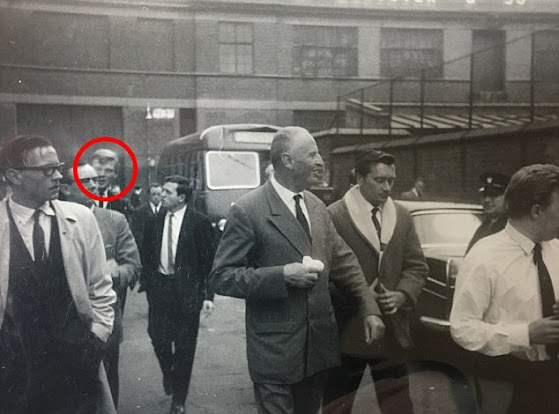Does the NHS actually exist any more, or is it an urban myth ?
I am not alone in believing the NHS is being slowly dismantled. This was happening long before Covid and the virus has simply speeded up the process. My own and family problems are as good an insight as any; many friends and acquaintances tell the same sorry tale.
Underneath it all is a country that accepts so many things with a shrug of the shoulders; many others would not; it is our way. Yet we pay for the non-service.
The overall problem is just not the poor top down management, or the farcical contract the GPs have exploited after Blair gave them way above what they asked for, but the seemingly total lack of any plan with meaning to correct the deficiencies.
It could be the NHS has reached a stage, and many would concur, that it needs dismantling in its current form and rebuilding from scratch. Not easy when so many still believe it is ‘the envy of the world’ when it is clearly not.
There is also the overriding impression that many in the NHS believe they are doing you a favour by just being part of it, an example of which is the nurse who when I explained a couple of years back about not being able to get an appointment, said with a straight face, 'Well, it is free.' How a supposedly intelligent woman could actually believe the NHS was free still escapes me but she meant it and thought I should be grateful for any crumbs that fall from the table. Her attitude is not hers alone: quite a few health professionals believe the NHS is theirs to be apportioned as and when they think fit.
It starts at the entry point, the GP surgery: this has gone from a 24-hour, 365-day-a-year service for those that needed it, to five-days-a-week 8am-5pm (with lunch break), with access almost impossible in many cases.
Sometimes a bit of simple investigation reveals a lot more than appears on the surface: the interminable entry recording when you phone, about Covid measures, how not to waste the practice's time and 'do not press the wrong option or you will have to start again'; this is then followed by the inevitable 'we are currently receiving high volumes of calls, can you phone back later?' or be put in a queue. I did this this morning to be told I was number eighteen in the queue and I cancelled the call; not only could you be hanging on for over an hour as has happened several times but you could also be cut off after a similar time as has also happened, making the whole thing pointless; perhaps that is the object, to simply discourage people from actually using the service.
In my case this morning it was after going into the surgery, or as it is called a ‘Medical Centre’
and speaking to the person dealing with prescriptions because I need my pain killers increased in number or potency as my hip arthritis gets worse. It was explained to me that a doctor would have to speak to me to get the prescription altered and for that I had to phone in - which makes her job on the desk a bit pointless. I have three days of tablets left and no way of accessing them other than trying to phone in; phoning in later is not an option as all the telephone appointments have been allocated.
In essence the surgery is not fit for purpose. The cries of 'lack of GPs' may well be true, but the position is exacerbated by the fact so many work three days or less as I have found out in my practice. My own allocated doctor, nice man though he is, only does Fridays in the surgery and half of that is phoning people; I have no knowledge of any other work or hours he puts in but he is not seeing sick people in that surgery in the numbers required.
The same cry goes up throughout the NHS, 'we are undermanned' is the mantra. Again there is something very wrong with an organisation that is so low on the list of doctors per thousand patients, hospital beds available, a shortage of nurses, when the same organisation is the biggest employer in Europe. We all know what that suggests and is undoubtedly true. The recruitment of diversity coordinators is not going to solve the problem, or interfering in the management of parks or even (despite the small numbers involved) having health workers decide to help out in foreign countries when they are needed here; who decides to spend our money that way?
Despite claimed manpower shortages you can see from the above chart there has been a 5% increase since last year and there was a 4% rise the previous year; where are they all?
NHS and social care staff burnout at an emergency level - report
Certain aspects of that report are undoubtedly true, but the GP complaining about being overwhelmed and burnt-out since the end of lock down is almost funny. They have been doing bugger-all for over a year, and how many in her practice work full-time, never mind overtime?
Using the pandemic as a way of prising more money out of us will not solve the problem. There has to be a root and branch change to all aspects of the NHS, starting with the GP area.
As far as myself is concerned this started way before the virus re GPs. My own tale goes back about five years when I became ill and had no idea what was going on. Because of the difficulties of getting in to see a GP I ignored the symptoms and they went away to return about three weeks later. I was really not well now so I phoned on several consecutive days over nearly two weeks with no joy at all, as they won't let you book in advance every day (the same saga) and was then told there were no more appointments.
Over the last weekend I said to the wife I was going to the surgery to demand to see a doctor on Monday morning, Monday morning came; I got up, went into the bathroom, felt terrible, came out and passed out on the bed. An ambulance was called and a paramedic did various tests, phoned the hospital and I was taken in to the emergency ward.
The long and the short of it was I had blood clots on both lungs and on the feeder arteries. There was nothing wrong with the treatment I got in hospital but I did learn a few home truths about GPs loading hospitals with procedures they should be doing; but when I was discharged the anti-coagulation senior nurse told me I was very lucky, another 48 hours and I would have been dead; so my loathing of the GP service went up a notch at that moment.
No health service is faultless. All suffer the perennial problems of new procedures and new drugs, all of which add to the bill. The difference in so many other countries is that the people who pay (you and I) have a say in how the health service is run; using an insurance element takes some control away from those who want to decide how we access medical services: you have a choice of doctors, surgeons and hospitals.
I was emailing the daughter of my oldest friend in Australia who is a psychiatric nurse, as is her husband. She could not believe how the NHS has sunk, and when I mentioned having to go private for my hip operation because of a two year wait on the NHS, she could not believe that either - plus no rebate for going private?
The price incidentally has firmed up since the virus created the waiting lists, and the private sector is using market forces in deciding how much you pay. Pre virus, depending on where you went to have the op, it could be as low as 9k; now everyone is around 15k and it is either that or a wheelchair. The time I have left is too precious for spending years suffering and not being able to walk, so I dip into hard-earned savings; and I am lucky enough to have that - many don’t and they have been left behind by the caring NHS as have so many others with different diseases and complaints.
On the procurement level the NHS is like all national bodies: it is not their money and so what? Nobody is ever accountable, unlike in the private sector. The many billions of pounds wasted on failed IT projects is a total disgrace in its own right, never mind badly-designed hospitals and equipment fiascos.
There has to be a change in the way the NHS is run. It has to be run for our benefit. If it needs more money it has to be accountable. The taxpayer needs a say in it all by having real choice; at the moment there is none, we are at the mercy of government whims, NHS self-interest and completely inadequate entry level care. When you add to that the deity which the NHS for many has become we have a huge problem.
The BBC article linked above is largely concerned with NHS staff shortages and well-being, focusing on their stress during the pandemic. It quotes 44% of staff being made unwell during the pandemic; how is that, when most of the NHS was at home or on standby? Only a relatively small number were engaged with catering to virus victims. There is so much emphasis on the NHS staff and very little for those who the NHS is supposed to care for and has failed miserably. The numbers in other areas outside of Covid who have died or been severely handicapped by their neglect is only just beginning to surface.
Either the NHS reinvents itself soon or it would be better if it went away. On so many levels now it really is not fit for purpose.













